
Center for Chelonian Conservation

Background
Chelonians (turtles and tortoises) are the most endangered vertebrate taxa on the planet with more than 60% of their species endangered or already extinct. Chelonians are threatened by habitat loss and fragmentation, human use for food and as pets, climate change and infectious and non-infectious diseases. Turtles and tortoises are essential to ecosystems with many species, including Galapagos tortoises, serving as "ecosystem engineers." Unfortunately, the health status of most species remains poorly understood. The Center for Chelonian Conservation supports the St. Louis Box Turtle Project, including box turtles and snapping turtles, the Galápagos Tortoise Movement Ecology Programme, and the Madagascar Radiated Tortoise Health Program. All three projects are led by the Saint Louis Zoo Institute for Conservation Medicine. We incorporate applied science, local capacity building and an inspirational tortoise-based outreach and education program to inform management decisions and local stakeholders in effectively conserving turtles and tortoises.
St. Louis Interest
The three-toed box turtle is the state reptile of Missouri. Since 2012, the St. Louis Box Turtle Project (SLBTP), led by the Saint Louis Zoo Institute for Conservation Medicine, has been collecting movement and health data on two populations of three-toed box turtles in Missouri. In parallel, the Galápagos Tortoise Movement Ecology Programme (GTMEP) has worked since 2009 to understand the health and movement ecology of Galápagos giant tortoises.
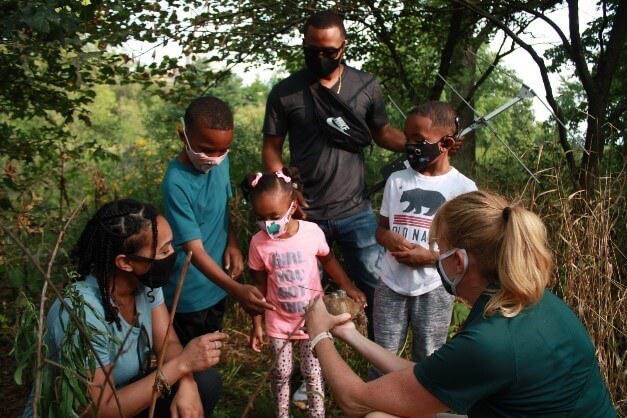
Through local research in North and South America, we have developed educational programs in both St. Louis and in Galápagos using turtles and tortoises as ambassadors to connect youth to nature. The SLBTP and GTMEP engage children through field experiences and classroom education about the conservation of their native species. Students also share information across projects about their local turtle and tortoise species.
Educational partners in St. Louis include Little Creek Nature area in Ferguson-Florissant School District, Gateway to the Great Outdoors, Principia School, and Captain Elementary School in Clayton. Educational partners in the Galápagos Islands include the Charles Darwin Foundation, the Galápagos National Park Directorate, Ecology Project International, Tomas de Berlanga School, and Loma Linda School.
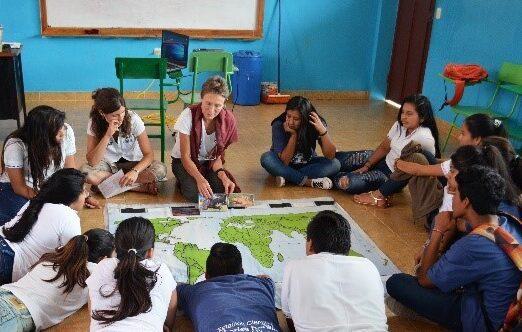
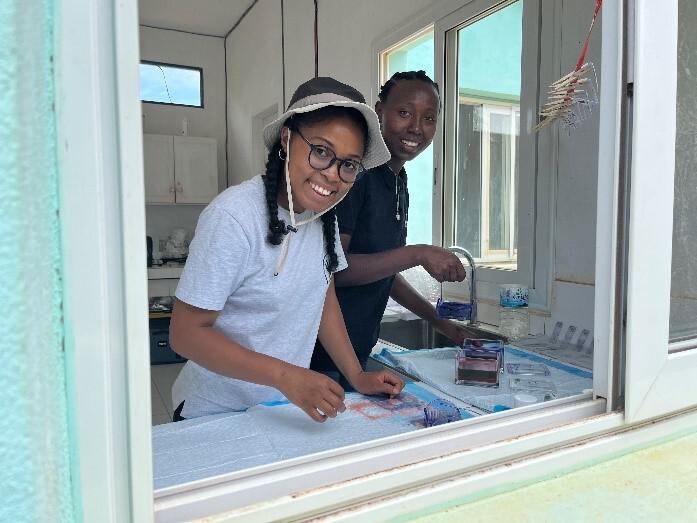
Health Matters
The health of Chelonians is integral for the health of other species, including humans. Turtles and tortoises may act as sentinels of their ecosystems by providing indications of environmental health. Due to their close contact with land, air and water, turtles and tortoises may be among the first species to show the effects of changing environments.
In St. Louis, we compare ranging patterns, ecology and health of box turtles in Forest Park with a rural area outside the city.
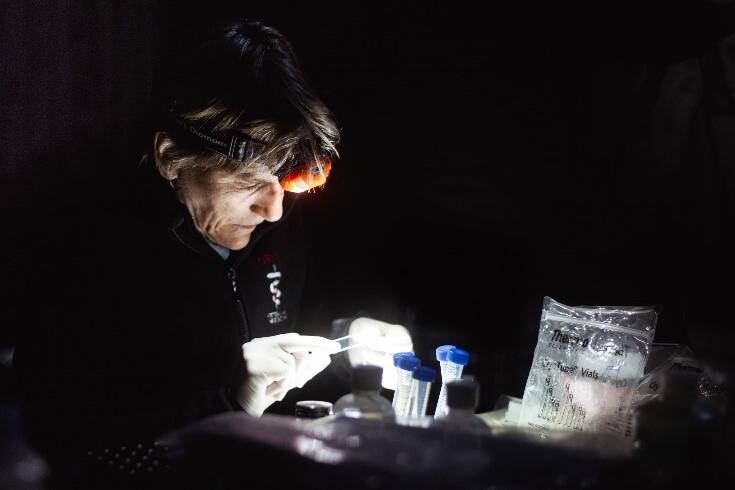
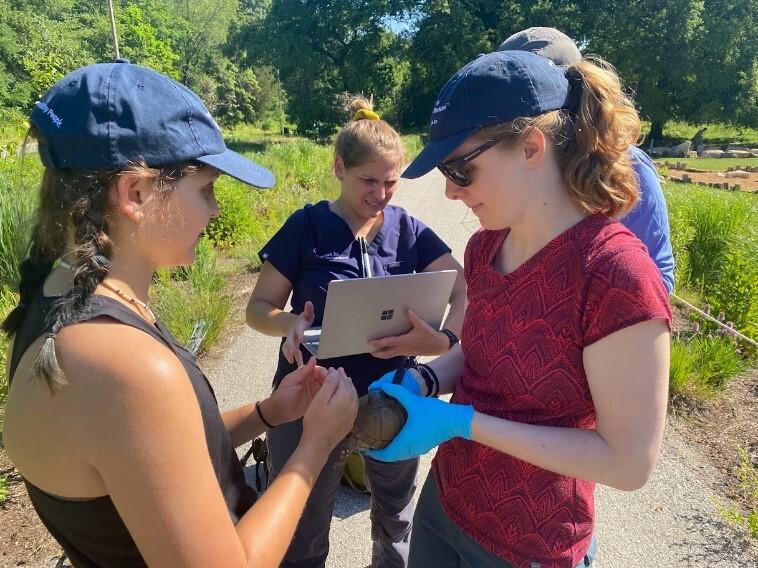
In Galápagos, we evaluate the movement ecology and health of giant tortoises across islands, from the most human-populated island of Santa Cruz to the isolated Alcedo Volcano or the pristine Española Island. This work allows us to better understand challenges that threaten the conservation of these iconic species.
In Madagascar, we work with the Turtle Survival Alliance in their efforts to release previously confiscated radiated tortoises (Astrochelys radiata). Radiated tortoises are one of the most trafficked tortoises in the world, with thousands extirpated from their natural habitat every year for food and the pet trade. Providing in-country local capacity and supporting health assessments of confiscated tortoises prior to their reintroduction back into their native range are instrumental to ensure the health of the species and the entire ecosystem.
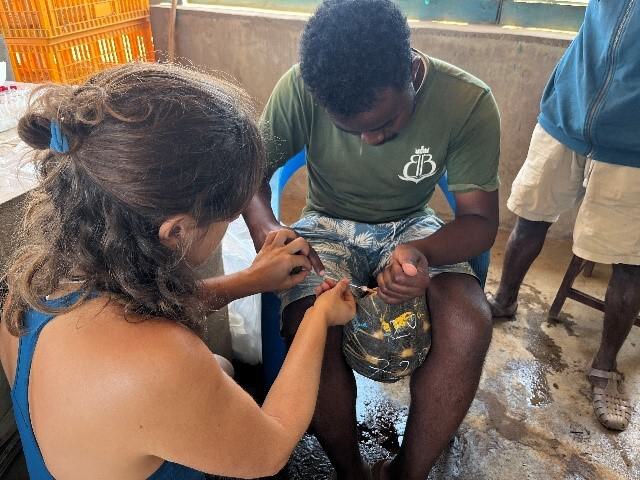
Science in Action
Galápagos
Our work has produced a considerable amount of health data to be used in free-living and captive tortoise management.
For the first time, we have described blood reference values of seven different tortoise species, an important tool to be used in routine health monitoring, as well as in assessing sick individuals. Two novel herpesviruses and two novel adenoviruses were described by our team in free-living giant tortoises. This discovery highlights the enormous amount of health knowledge still to be discovered and has led to the implementation of routine health checks before tortoises are relocated.
Human behaviors are a new threat to endemic species. In 2021, we were the first to describe the presence of antibiotic resistance in free-living Galápagos tortoises, a global concern for human and animal health. We have found that tortoises living close to human settlements are ingesting human debris, including plastics. As the world population grows, the impact of pollution and its harmful effects on wildlife and human health will multiply. Healthy tortoises are essential to the tourism industry in Galápagos and crucial for the livelihoods of the local people reliant on the ecotourism sector.
Madagascar
Since January 2020, we have been working with radiated tortoises to develop a comprehensive health project for tortoises confiscated from poachers. We now execute routine health assessments, including infectious disease testing, of animals slated for release. Through our ongoing local capacity efforts, we provide tools and skills to support conservation of some of the most threatened tortoise species on earth.
U.S.A.
In Forest Park, we work with park ecologists to study how native habitat restoration — from the control of invasive plant species to possible negative impacts associated with waterway modifications — may affect the health and behavior of species that call the park home. We test box turtles and snapping turtles in Forest Park for infectious and non-infectious diseases. These results provide data on the health of the ecosystems on which these turtles are dependent.
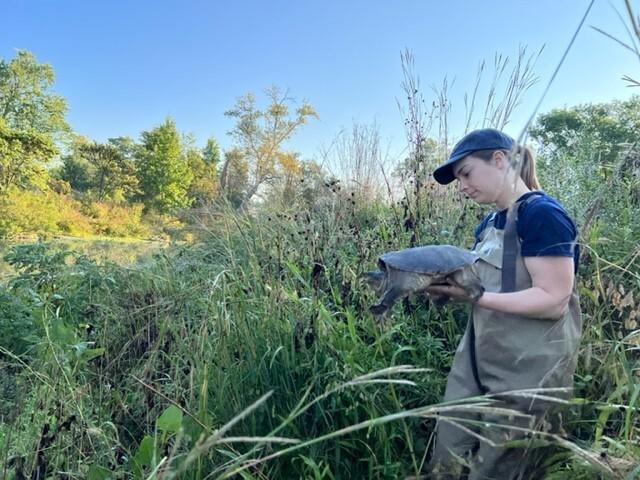
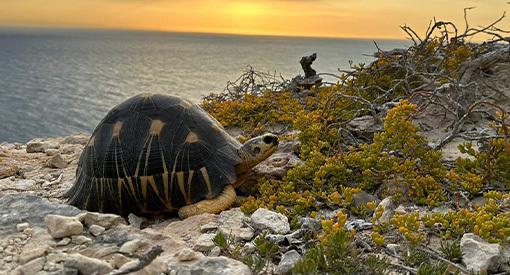
Institute for Conservation Medicine
For more information on these programs, please see the Saint Louis Zoo Institute for Conservation Medicine page.
Research Partners
Forest Park Forever
Washington University Tyson Research Center
Saint Louis University, Blake Lab
Galápagos National Park Directorate
Charles Darwin Foundation
Galápagos Conservation Trust
Houston Zoo
Washington University Environmental Microbiology and Genomics Lab
Shaffer Lab, UCLA Department of Ecology and Evolutionary Biolog
Turtle Survival Alliance
Mahaliana Veterinary Diagnostic Lab
Wildlife Conservation Society – Bronx Zoo
Zoo Knoxville
Zoo Atlanta
Mississippi Aquarium
AZA SAFE Radiated Tortoise Program
AZA SAFE North American Turtle Program

